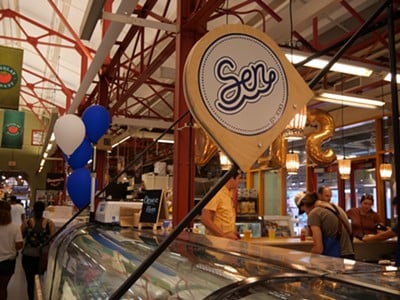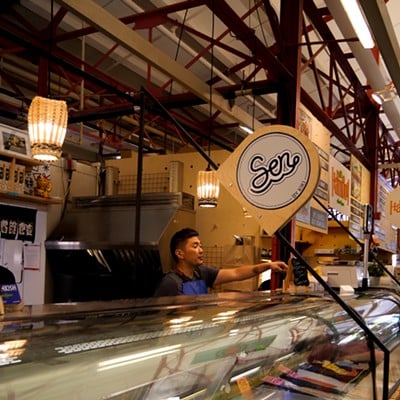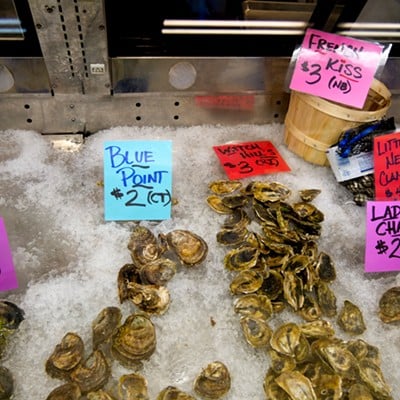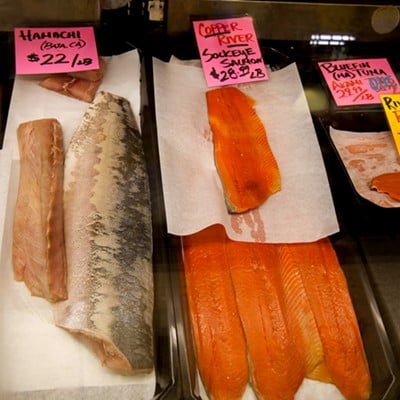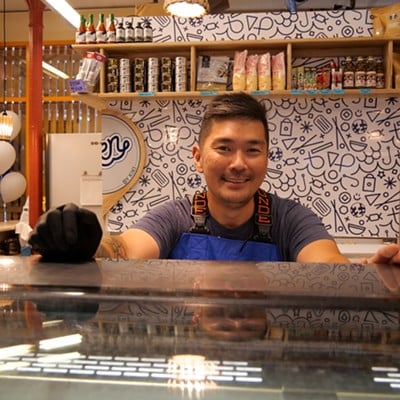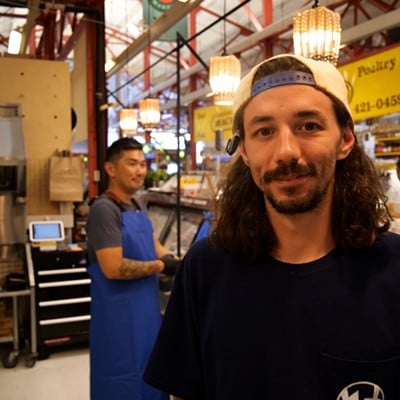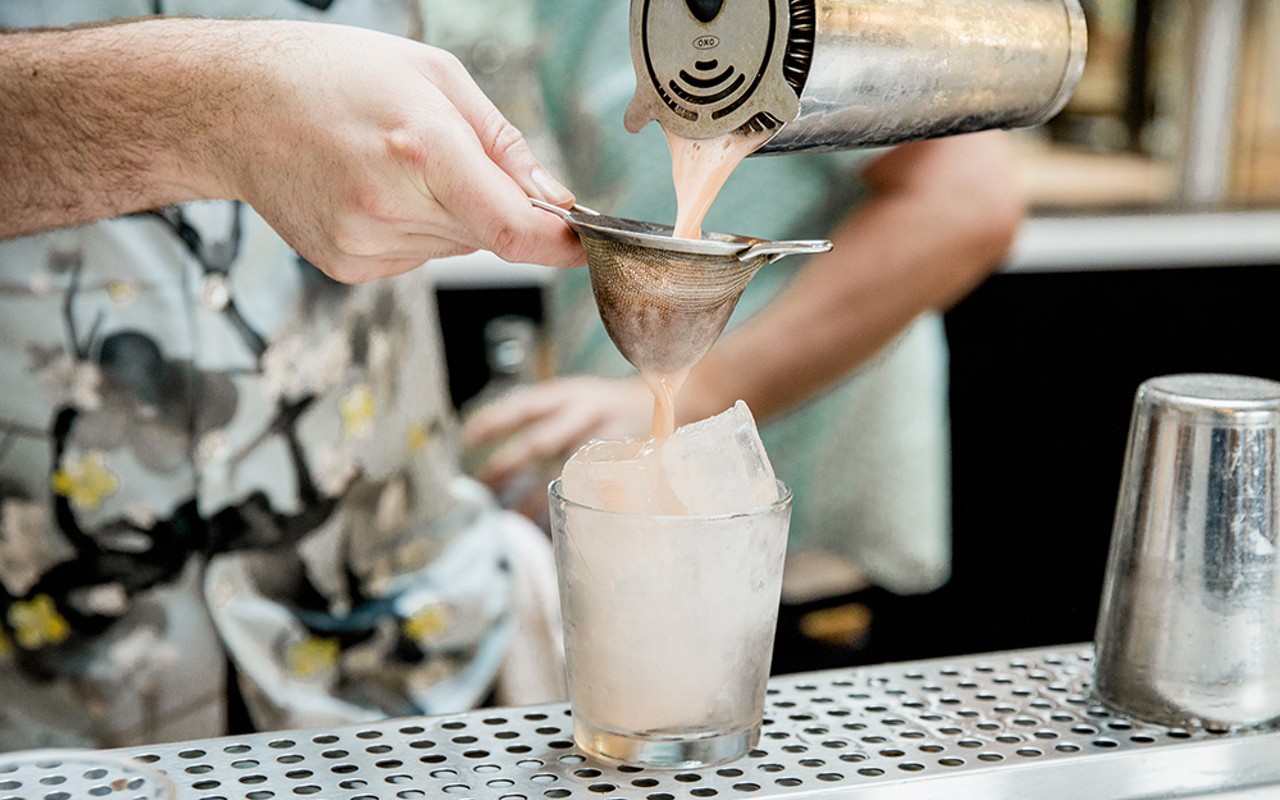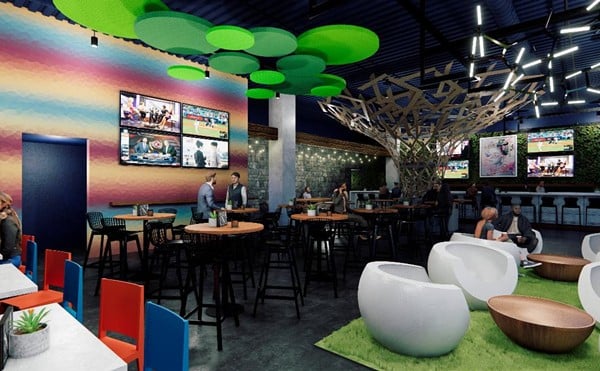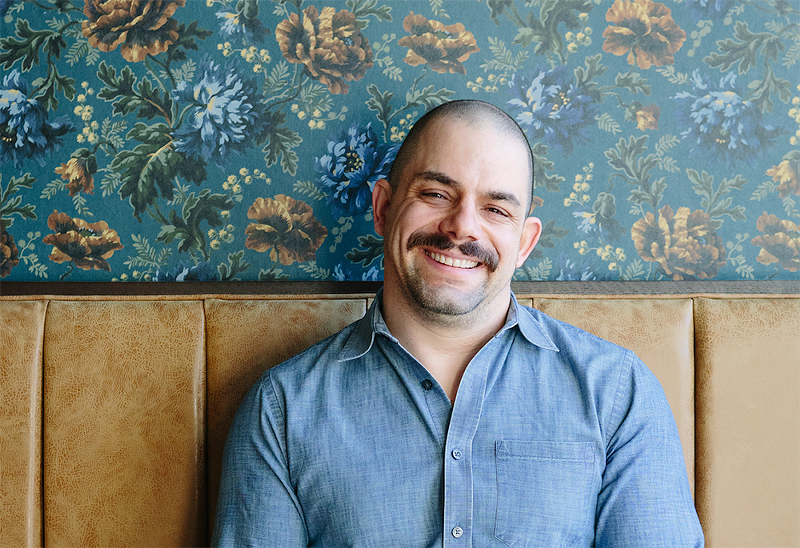
Prices are up just about everywhere these days and, as a result, the effects range from mildly irritating to downright untenable.
Yes, gasoline prices have increased nearly 60% over a 12-months period, but American spending also has been hit hard at the grocery store, where overall food costs have risen by 10.4%, the most significant annual rise since 1981, according to data that the U.S. Bureau of Lator Statistics released July 13.
Consumers across the board are affected when food costs more at the grocery store, but local restaurateurs face difficulty on a much larger scale in an industry known for razor-thin profit margins. Below, three notable Queen City culinary tastemakers tell CityBeat about how they’re navigating steep inflation.
JOSE SALAZAR
Jose Salazar has earned the respect and admiration of Cincinnati diners and beyond with his culinary talent, managing some of the city’s most highly acclaimed restaurants. The James Beard Award-nominated chef soon will open Daylily, a coffee-deli-bodega in Columbia Tusculum and is the proprietor of Mita’s (Spanish-style tapas and ceviche), Goose & Elder (old-school American) and the titular Salazar Restaurant (inventive-yet-familiar takes on farm-fresh seasonal ingredients).
“We’re really not turning a profit. It’s because of the increased cost of goods and labor — basically, everything. You need a piece of equipment repaired? It’s 30% more than it was a year or two ago. You need a new refrigerator, it’s 50%. It’s all related,” Salazar tells CityBeat. “Gas prices, for the labor, for those folks that are making the fridges and repairing the fridges, all those things are coupled with the cost of goods for us in our business. So, it’s super, super difficult.”
How to handle the increased cost of goods is tricky and can be a matter of optics, Salazar says. After talking with other local chefs, he says there’s a lot of hesitation to significantly raise prices to meet cost of goods and labor because restaurateurs risk pricing themselves out of the market.
“It’s a terrible Catch-22 because we’re basically operating net or at a loss in many cases, and the prices should be substantially higher,” Salazar says. “But I get it as a consumer myself. It’s not like us restaurant tourists don’t go out to eat and don’t go to the grocery store and don’t go to the gas tank and all that stuff. So, we totally understand that sticker shock when you go into a restaurant and see a $30 entree or you see an $18 sandwich. The reality is that $18 sandwich should be a $24 sandwich in order for us to be profitable.”
Salazar says he has had to shop around a lot more to find reasonable prices for ingredients, especially with his menus’ emphasis on quality fresh fish. While Salazar previously was able to depend on various sources consistently, he’s now directly dealing with fishers in Florida and on the East Coast for the best prices, meaning he’s putting more work into procuring the same standard of ingredients he’s known for.
HIDEKI “KIKI” HARADA
Hideki Harada is owner and chef of the ramen and Japanese comfort food spot Kiki College Hill and proprietor of the newly opened Sen by Kiki, a fish stand at Findlay Market. Harada mentions cost-related issues raised by Salazar and notes that food distributors have increased the minimum cost of orders to be delivered to the restaurant.
“The heartache I have with some of my old purveyors is, all of a sudden, they [previously] had a $150 minimum; it now is, like, a $300 minimum. And I’m not going to be able to do that,” Harada says. “At Kiki, we’re a 65-seat restaurant. We’re not going to meet those minimums every day or every week. I can’t just buy everything at the beginning of the week and then have my fingers crossed to sell everything by the end of the week. We can’t rely on that.”
As a result of those high-priced minimum orders, Harada and owners/chefs at other similarly sized restaurants have had to disengage with several companies they once depended upon for ingredients. Harada figures the distributors have increased the minimums because of a shortage of delivery drivers coupled with higher gas prices, and the “little guys” have no chance to compete with larger corporate restaurants.
“They just keep feeding the big giants and then little people just resort to [buying] from local places. Maybe we’re paying a little more premium, but you can also handpick your items as well. So there might be a good trade off,” Harada says. “It’s turning into, I think, a more localized economy when you have these problems that happen. It makes sense for me to just walk over to Roth Produce to grab lemons. It’s great to have this little ecosystem here. And, you know, I know a lot of other vendors or businesses do the same thing, so it’s kind of cool. It might be a little more expensive than buying half a case of lemons and sitting on it, but I get to pick every lemon that I use. Sometimes [distributors] would deliver a rotten case and you can’t do anything with that.”
RYAN MORGAN
Head baker for Sixteen Bricks Bakery, which has provided nationally acclaimed artisanal bread for the past eleven years, Ryan Morgan also is opening a bakery/pizzeria in College Hill called El Camino in the restaurant space formerly occupied by Red Rose Jems Pizzeria.
According to the U.S. Bureau of Labor Statistics, the price of flour has risen by nearly 20%, but Morgan is staying a step ahead with the ability to mill his own grain.
“Flour — white commodity bullshit flour — is now more expensive than whole grain grown in Kentucky,” says Morgan, who is a proponent for eating locally. “[Inflation] is an interesting opportunity because I can keep prices down while feeding people real food.”
Morgan says that commercially available white flour from grocery stores loses all of the unique flavor profiles that are found in stone milled whole grains and that commodity flour’s nutrition is diminished as a result of processing. He also notes that local agriculture isn’t as seriously affected by international crises.
“It’s a huge opportunity to get people back to understanding what comes from me, rather than what comes from the fucking Ukraine on a boat,” Morgan says.
While Morgan’s business relies on much more than just flour, the price of locally produced goods is not as devastatingly inflated as items that depend upon frequent or long-distance transportation, he says.
Salazar, 1401 Republic St., Over-the-Rhine, salazarcincinnati.com.
Kiki College Hill, 5932 Hamilton Ave., College Hill, kikicincinnati.com.
Sixteen Bricks Bakery, 4760-B Paddock Road, Bond Hill, sixteenbricks.com.
Stay connected with CityBeat. Subscribe to our newsletters, and follow us on Facebook, Instagram, Twitter, Google News, Apple News and Reddit.
Send CityBeat a news or story tip or submit a calendar event.


